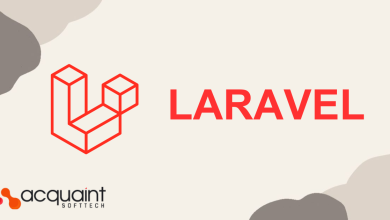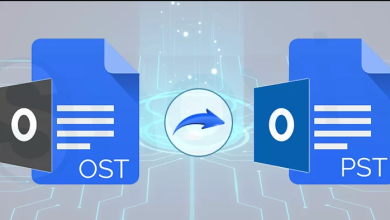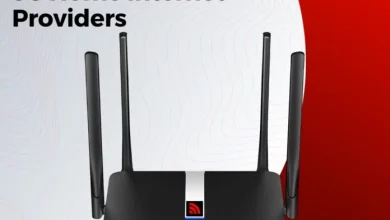The Essential Role of Event Management Software in Modern Event Planning

In today’s fast-paced world, the success of any event, be it a conference, trade show, wedding, or music festival, hinges on efficient planning and seamless execution. To achieve these objectives, event organizers increasingly rely on event management software. This technological boon plays a pivotal role in the event planning and execution process, offering a range of features and benefits that make it an indispensable tool. In this article, we will delve into the multifaceted role of event management software and explore how it has revolutionized the world of event planning.
Streamlining Event Planning
Event planning is a complex and multifaceted process that involves numerous tasks, timelines, and stakeholders. Event management software streamlines this process by centralizing all the essential components, from budgeting and vendor management to attendee registration and marketing campaigns. This consolidation of information and tasks simplifies event planning, making it more efficient and organized.
Event organizers can create detailed project timelines, assign tasks to team members, and monitor progress in real-time. This ensures that everyone involved in the event is on the same page and that critical deadlines are met. With this level of organization, planners can focus on strategic aspects of the event, such as design and content, rather than getting bogged down by administrative details.
Efficient Attendee Registration and Ticketing
Event management software offers robust attendee registration and ticketing capabilities. Gone are the days of manually processing paper registrations and tickets. With this software, attendees can easily register online, select ticket types, and make payments securely. This not only saves time and resources for organizers but also provides a convenient experience for attendees.
Moreover, event management software often includes features like wait listing, discount code integration, and the ability to track attendee data. Organizers can gain valuable insights into attendee demographics, preferences, and purchasing behavior, which can inform marketing strategies and event planning for future iterations.
Enhanced Marketing and Promotion
Effective marketing and promotion are vital for attracting attendees to an event. Event management software offers a suite of tools to facilitate these efforts. Organizers can create and manage email marketing campaigns, social media promotions, and personalized communications with ease.
Additionally, software platforms often integrate with customer relationship management (CRM) systems, allowing organizers to segment their attendee lists and tailor marketing messages accordingly. This targeted approach increases the chances of engaging potential attendees and converting them into registered participants.
Real-Time Data and Analytics
Event management software provides access to real-time data and analytics, enabling organizers to make informed decisions on the fly. Key metrics such as registration numbers, ticket sales, revenue, and attendee demographics are readily available. This data-driven approach allows event planners to adjust their strategies as needed, whether it’s changing pricing tiers, tweaking marketing campaigns, or modifying event logistics.
The ability to generate reports and analyze data is particularly valuable in assessing the success of an event post-execution. Event management software allows organizers to evaluate attendee satisfaction, track revenue against expenses, and identify areas for improvement. This feedback loop is essential for continuous event optimization.
Must read: How to Read MDF File Objects?
Efficient Communication and Collaboration
Collaboration is at the heart of successful event planning. Event management software provides a centralized platform for communication and collaboration among team members, vendors, sponsors, and other stakeholders. Through shared calendars, task assignments, and discussion threads, everyone involved in the event can stay informed and connected.
Efficient communication is crucial during the planning stages as well as during the event itself. For instance, on event day, staff can use mobile event management apps to communicate last-minute changes, emergencies, and logistical updates in real-time. This ensures that everyone is on the same page and that the event runs smoothly.
Simplified Vendor and Resource Management
Events often require coordination with multiple vendors an resources, including caterers, audiovisual equipment providers, decorators, and more. Event management software simplifies vendor and resource management by offering tools to track contracts, payments, and delivery schedules.
Furthermore, organizers can use the software to create vendor profiles, compare quotes, and manage budgets more effectively. This level of organization minimizes the risk of miscommunication and ensures that vendors are aligned with the event’s objectives.
On-Site Management and Engagement
On the day of the event, efficient on-site management is crucial for a seamless experience. Event management software offers features like mobile check-in and badge printing, making attendee registration and access control swift and hassle-free. Attendees can receive digital tickets or badges on their smartphones, reducing the need for physical paper tickets.
Additionally, interactive features such as live polling, Q&A sessions, and attendee networking can be facilitated through the software. This engagement enhances the overall event experience and allows organizers to gather valuable feedback in real-time.
Enhanced Security and Privacy
Security and data privacy are paramount concerns for event organizers. Event management software typically includes robust security features, such as secure payment processing, data encryption, and access control. This ensures that sensitive attendee information is protected from unauthorized access.
Moreover, compliance with data protection regulations, such as GDPR, is simplified through the software’s data management tools. Organizers can easily obtain consent for data collection and manage attendee preferences regarding data usage.
Conclusion
Event management software has evolved into a pivotal tool for modern event planning. Its multifaceted role encompasses everything from streamlining planning and registration to enhancing marketing efforts, facilitating efficient communication, and optimizing on-site experiences. As technology continues to advance, event management software will likely become even more sophisticated, further revolutionizing the industry and contributing to the success of countless events worldwide.
In an era where events are central to business growth, community engagement, and personal celebrations, event management software empowers organizers to create unforgettable experiences efficiently and effectively. It’s not just a tool; it’s a cornerstone of modern event planning.
Also read about: The Power of Social Events Building Strengthening



